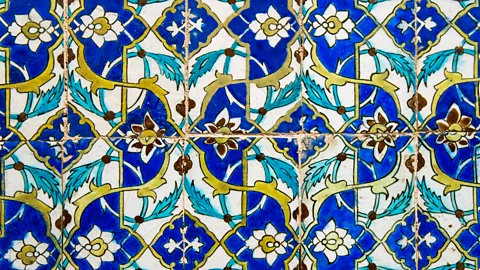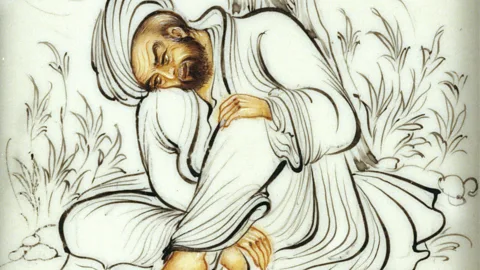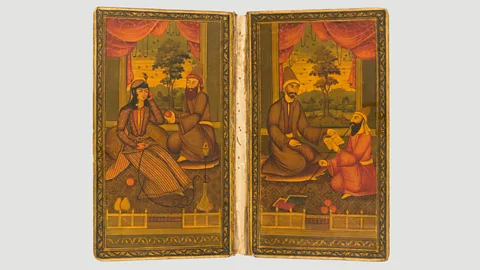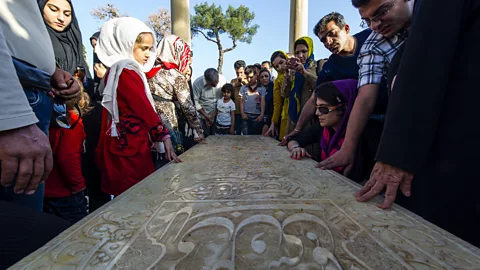The mystical poet who can help you lead a better life
 Getty images
Getty imagesThe 14th-Century Persian poet Hafiz’s work is not just very beautiful – it is useful too. Hafiz can teach us how to get the most out of our lives, writes Daniel Ladinsky.
Shams-ud-din Muhammad Hafiz (c. 1320-1389) is one of the most beloved poets of the Persians, and is considered by many – from different cultures – to be one of the seven literary wonders of the world. Ralph Waldo Emerson and Johann Wolfgang von Goethe both agreed. As Emerson said of Hafiz: "He fears nothing. He sees too far, he sees throughout; such is the only man I wish to see or be." And Emerson gave Hafiz that grand and famous compliment, "Hafiz is a poet for poets."
Both Goethe and Emerson translated Hafiz. And after Geothe's deep study of him, simply – though remarkably – stated, "Hafiz has no peer."
Hafiz poems were also ired by such diverse notables as Nietzsche and Arthur Conan Doyle, whose wonderful character Sherlock Holmes quotes Hafiz. Garcia Lorca praised the Sufi poet. Johannes Brahms was so touched by his verse he used several in his compositions. And even Queen Victoria was said to have consulted Hafiz in times of need – which has been a custom in the Middle East for centuries. The Fal-e Hafiz, is an ancient tradition in which a reader asks Hafiz for advice when facing a difficulty or at an important juncture in their life – treating his books as an oracle and opening them with a deep wish from their soul for guidance.
 De Agostini/Getty Images
De Agostini/Getty ImagesThe range of Hafiz is indeed stunning and provocative at times:
I am a hole in a flute that the Christ's breath
moves through – listen to this music.
Then this, from another poem,
Look at the smile on the Earth's lips this
morning, she laid again with me last night!
I feel Hafiz is a rare master of ‘the utility of light’ – or ‘the sun’. And ‘the utility of art’. His poetry bestows its benevolence and ability to comfort, enliven and enrich those in need. Art should be a lover; it should radiate and allow you to warm yourself if in any way cold. Art can quench inner thirst and hunger. And in studying the lives – and working with the poetry – of Rumi, Michelangelo, St Francis, Kabir, Mira and Hafiz, and several of the other great poet-seers, East and West, I came to learn that there was a wonderful common denominator in their work. They helped me form a three-word definition of art, which I then felt was a true gauge for success of any of poems or writings I ever become involved with, including my own. As Emerson saw Hafiz as a genuine measure of himself in all of his interactions, I too try to keep Hafiz before me when dealing with another person – or animal, creature or even plant. As water is poured through a cloth to collect impurities, I try and pour myself through the poems of Hafiz, and my images of him.
In the moment
Those three words that Hafiz exemplifies, that came to me in studying the lives and works of those greats I just mentioned are an important definition and goal of art, and a standard I hold myself to: engage and give.
 Wikipedia
WikipediaPerhaps one of the greatest attributes and values of art is to capture and exploit another person's attention. For when beauty does that the witness, or audience, always benefits. As Hafiz says:
The mountain's face lifted me higher than
itself.
A song's wink aligned me with joy. And a
tune paradise hums I came to know.
The forest, letting me walk amongst its naked
limbs, had me on my knees again in silence
shouting – yes, yes my holy friend, let your
splendour devour me.
To be engaged by a true teacher like Hafiz is to have lasting ingredients put into your mind, that when cooked through contemplation help us lead a better life. Inherent in engaging someone's interest is to make them present. And with so many suffering the tyranny of some past event or anxieties about the future, what a gift being in the moment can be, especially then if a jewel can be slipped into your pocket by some magi'sbrush stroke, writings, sculpture, instrument, or ballet step. Hafiz helps us inherit a treasure that is already ours, decreed at birth; and he speaks directly about that in some of his poems – how to file your claim!
‘Wine-tasting of the sky’
I have published around 700 Hafiz rendering-poems in six books. And the impetus behind every single line of Hafiz I ever wrote is to help light a candle in your heart, to assist our perennial need to have fun, laugh and dance, "to lift the corners of your mouth." The weight that can be on us in an hour or a day, Hafiz is there to lighten. His love for us is time tested and keeps encouraging and can inspire. He helps us to forgive those we have yet to forgive. And honour those we have yet to honour. And his herculean strength, his enlightenment, will rub off on you so that you too wish (and discover yourself more able) never to harm another via sound or movement. Hafiz became incapable of an unkind act, it is said.
In hundreds of ways Hafiz addresses what impedes us from living a more fulfilled life. With unique, charming metaphors that he seems able to rain from the ground up, he longs to help the highest aspects in us lead all the other parts to a place where we can breathe easier and kick back more and say: "Ahhhh, this world isn’t so bad, as a matter of fact – it is amazing!"
 Getty Images
Getty ImagesHafiz says:
If your knees have not buckled in ecstasy while standing
when a veil parts.
If a cherished tear of gratitude has not sung leaping from
your eye.
If anything your palm does touch cannot help reveal the
Beloved.
My words are full of golden secrets that are not too hard
to crack, and will remedy one hundred fears and ills.
So, so many of Hafiz’s poems are precisely about unfettering the senses and refining the will, so that we do more “wine-tasting of the sky”, and more tenderly holding – in thought or with arms – the things we most love and know as precious nourishment. He unsnares our “emerald wings”.
Tales of the master
Two stories of Hafiz come to mind that my own teacher told me, and here again, these show the great range of Hafiz, and to me his rather incredible ability to never bore. To constantly engage and give. And so creatively lead.
The first story goes:
Once a young woman came to Hafiz and said,
window._taboola = window._taboola || []; _taboola.push({ mode: 'alternating-thumbnails-a', container: 'taboola-below-article', placement: 'Below Article', target_type: 'mix' });
